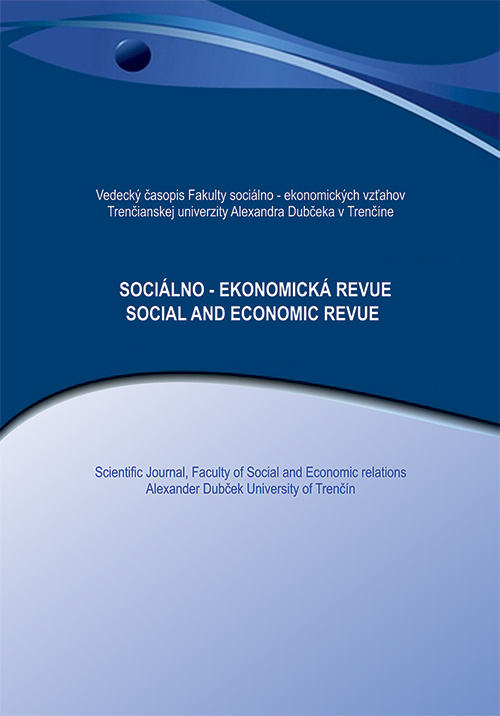DEVELOPING PROFESSIONAL COMPETENCIES OF STUDENTS IN A PLURILINGUAL CONTEXT
This paper provides a picture of the importance of the skills that every student should develop in a plurilingual context, of the satisfactions and challenges of being competent in the labor market in the era of globalization. By presenting an overview of the professional competencies for students, these theoretical approaches give an insight into how to succeed to be a good professional, how to use and develop subject knowledge and how to take charge of the continuing development as a student. Nowadays, apart from knowledge, experience, and competencies, it is important that students bring with them the interpersonal skills paired with decision-making and problem-solving skills. The cooperation between students, the different stages of development of a group of students organizing in intercultural teams, driven by one common target have distinct advantages that are necessary for developing a high-performance of professional competencies. In our society, we have to develop a deep understanding and awareness of the professional competences for students of all countries and cultures and knowledge in developing the ability to adapt to the new labor market.
Vydanie: 2018/3 Strany: 56-60 Klasifikácia JEL: M53, Z13, I25
DOI:
Kľúčové slová: labor market, higher education, competencies, pluricultural context, professional
Sekcia: LANGUAGE COMPETENCES IN HUMAN RESOURCES DEVELOPMENT
Kontakty:
Anna M. Devís-Arbona, Dr.
Faculty of Teacher Training, University of Valencia
Av. dels Tarongers, 4, 46022 Valencia
Spain
e-mail: Anna.Devis@uv.es
Silvia-Maria Chireac, Dr.
Faculty of Teacher Training, University of Valencia
Av. dels Tarongers, 4, 46022 Valencia
Spain
e-mail: Silvia.Chireac@uv.es
Literatúra:
Barnes, D. (1987). From Communication to Curriculum. Harmondsworth: Penguin.
Biggs, J. (1999). Teaching for Quality Learning at University. Buckingham: SRHE/Open University Press.
Bjork, D. R. (1994). Memory and metamemory: Considerations in the training of human beings. Metcalfe, J. & A. P. Shimamura, A. P. (eds.): Metacognition: Knowing about knowing. Cambridge, MA: MIT Press, 185-205.
Bruner, J.S. (1966). Towards a Theory of Learning. Cambridge, MA: Harvard University Press.
Doyle, T. (2008). Helping students learn in a learner-centered environment. Virginia : Sterling.
Keefe, J.W. and Ferrell, B.G. (1990) Developing a defensible learning style paradigm. Educational Leadership, 48 (2), 57–61.
Nicholls, G. (2002). Developing teaching and learning in higher education. London: Routledge.
Ramsden, P. (1992). Learning to Teach in Higher Education. London: Routledge.
Robotham, D. (1999) Application of Learning Style Theory in Higher Education. [acc.: 2018-05-04]. Retrieved from: http://www.chelt.ac.uk/el/philg/gdn/discuss/kolb2.htm
Van der Velden, R. (2013). Measuring Competences in Higher Education: What Next? Blömeke,S., Zlatkin-Troitschanskaia, O., Kuhn, C. & Fege, J. (eds.): Modeling and Measuring Competencies in Higher Education. Rotterdam: Sense Publishers, 207-217.
Wolfe, D.M and Kolb, D. (1984). Career development, personal growth and experiential learning in organisational psychology. Kolb,D., Rubin, I. and McIntyre, J. (eds.): Readings on Human Behaviour, 4th edn. New Jersey: Prentice Hall, pp. 124-152.


